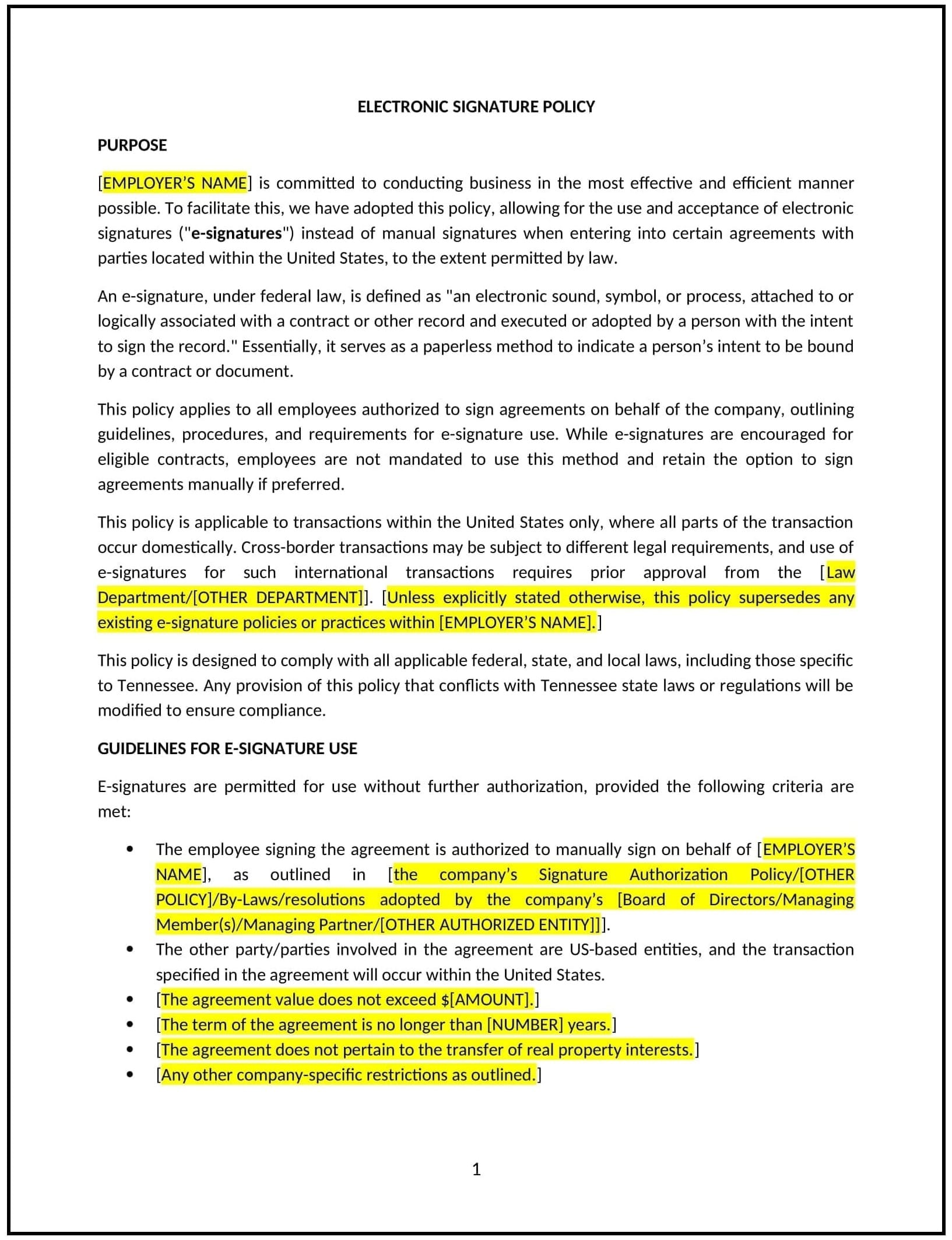Electronic signature policy (Tennessee): Free template
Got contracts to review? While you're here for policies, let Cobrief make contract review effortless—start your free review now.

Customize this template for free
Electronic signature policy (Tennessee)
This electronic signature policy is designed to help Tennessee businesses establish guidelines for using electronic signatures in place of handwritten signatures. It outlines procedures for ensuring the validity, security, and enforceability of electronic signatures.
By adopting this policy, businesses can streamline document processes, reduce paperwork, and align with modern business practices.
How to use this electronic signature policy (Tennessee)
- Define electronic signatures: Clarify what constitutes an electronic signature, such as typed names or digital signatures.
- Set usage guidelines: Specify which documents can be signed electronically, such as contracts, agreements, or internal forms.
- Address security measures: Outline steps for ensuring the authenticity and integrity of electronic signatures.
- Train employees: Educate staff on using electronic signatures correctly and securely.
- Review and update: Assess the policy annually to ensure it aligns with evolving business needs and legal standards.
Benefits of using this electronic signature policy (Tennessee)
This policy offers several advantages for Tennessee businesses:
- Streamlines processes: Reduces the time and effort required for document signing.
- Enhances efficiency: Allows for faster approval and execution of agreements.
- Reduces paperwork: Minimizes the need for physical storage of signed documents.
- Supports remote work: Enables employees to sign documents from any location.
- Aligns with modern practices: Encourages the adoption of digital tools for business operations.
Tips for using this electronic signature policy (Tennessee)
- Communicate the policy: Share the policy with employees and include it in the employee handbook.
- Provide training: Educate staff on using electronic signatures correctly and securely.
- Monitor compliance: Regularly review electronic signature usage to ensure adherence.
- Address issues promptly: Take corrective action if electronic signatures are misused or compromised.
- Update regularly: Assess the policy annually to ensure it aligns with evolving business needs.